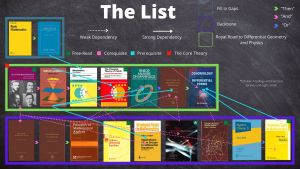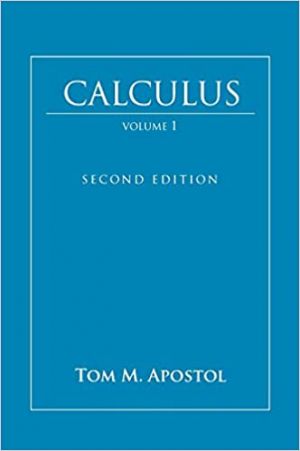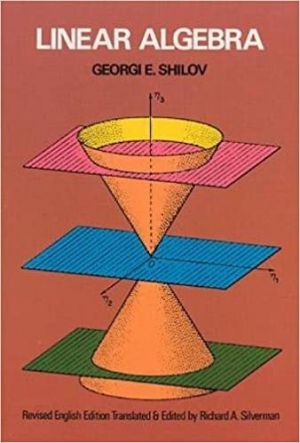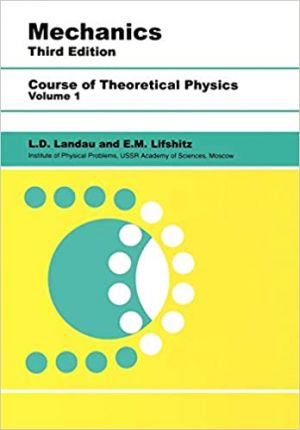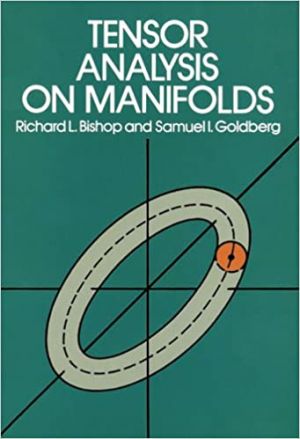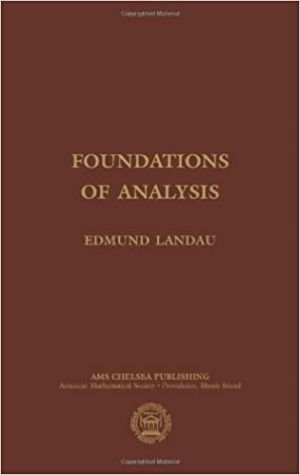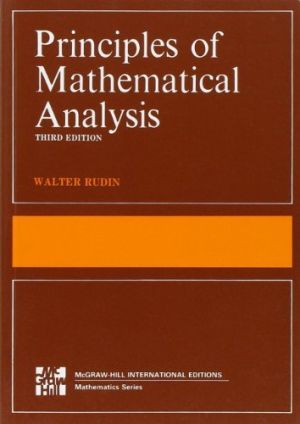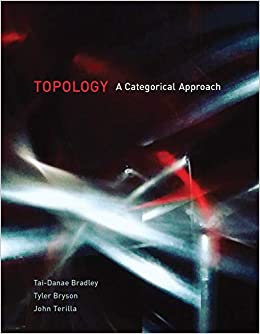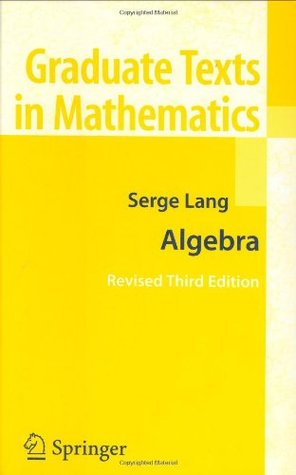Read: Difference between revisions
No edit summary |
No edit summary |
||
| Line 3: | Line 3: | ||
This list of books provides the most direct and rigorous route to understanding differential geometry, the mathematical language of physics. Each selection thoroughly addresses its subject matter. The list does not need to be read linearly or only one book at a time. It is encouraged to go between books and/or read several together to acquire the necessary language and understand the motivations for each idea. The greatest hurdles are the motivation to learn and developing an understanding of the language of mathematics. | This list of books provides the most direct and rigorous route to understanding differential geometry, the mathematical language of physics. Each selection thoroughly addresses its subject matter. The list does not need to be read linearly or only one book at a time. It is encouraged to go between books and/or read several together to acquire the necessary language and understand the motivations for each idea. The greatest hurdles are the motivation to learn and developing an understanding of the language of mathematics. | ||
See the image on the right for a visual | See the image on the right for a visual representation of its dependencies. | ||
Also see this [[Watch|list of video lectures]]. | Also see this [[Watch|list of video lectures]]. | ||
Revision as of 17:47, 20 September 2021
This list of books provides the most direct and rigorous route to understanding differential geometry, the mathematical language of physics. Each selection thoroughly addresses its subject matter. The list does not need to be read linearly or only one book at a time. It is encouraged to go between books and/or read several together to acquire the necessary language and understand the motivations for each idea. The greatest hurdles are the motivation to learn and developing an understanding of the language of mathematics.
See the image on the right for a visual representation of its dependencies.
Also see this list of video lectures.
List Structure
The Royal Road to Differential Geometry and Physics is the list's core. While on that track, you should refer to the Fill in Gaps and Backbone sections as needed or as you desire.
The Fill in Gaps section covers the knowledge acquired in a strong high school mathematics education. Refer to it as needed, or begin there to develop your core skills.
The Backbone section supports the ideas in the Royal Road. Refer to it to strengthen your understanding of the ideas in the main track and to take those ideas further.
Fill in Gaps
Royal Road to Differential Geometry and Physics
Sets for Mathematics
Categorical approach to set theory by F. William Lawvere.
Backbone reference:
Mechanics
Classical mechanics of physics by Lev Landau.
Prerequisite:
Backbone reference:
Tensor Analysis on Manifolds
Tensor analysis by Richard Bishop and Samuel Goldberg.
Prerequisite:
Backbone reference:
Lectures on Differential Geometry
Differential geometry by Shlomo Sternberg.
Prerequisite:
Backbone reference:
Cohomology & Differential Forms
Cohomology and differential forms by Isu Vaisman.
Backbone reference:
Backbone
Applications of Lie Groups to Differential Equations
Applications of Lie Groups to Differential Equations by Peter Olver.

